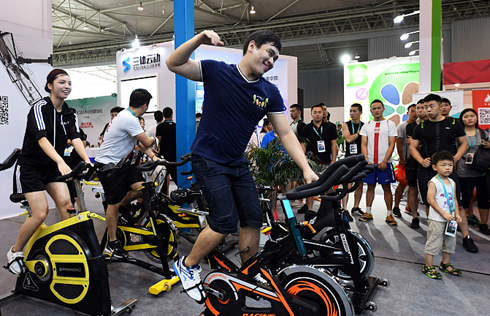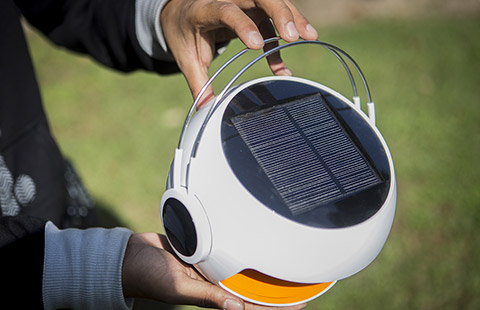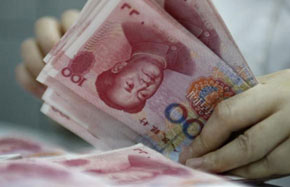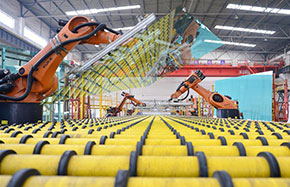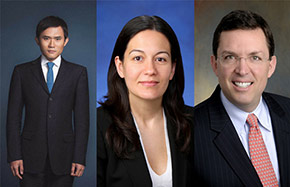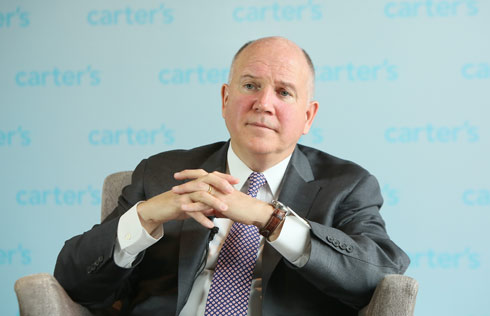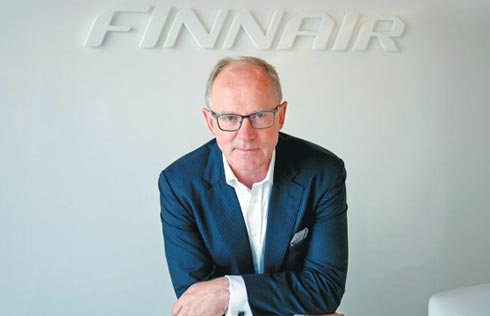Making China energy-smart
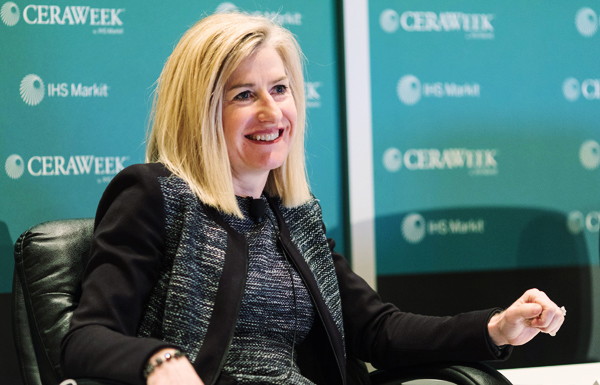 |
|
Rebecca Liebert, president and CEO of Honeywell UOP, said the company helps its customers in China to make more money with better technology, better energy efficiency and better environmental footprint. BLOOMBERG |
Rebecca Liebert leads Honeywell UOP's efforts to transform the petrochemical industry
Petrochemicals and their applications have pride of place in this energy-hungry world-and anyone who can help produce clean, cost-efficient energy will enjoy added significance, more so in large, populous countries such as China.
Honeywell UOP, a strategic business unit of Honeywell's performance materials and technologies division, does precisely that.
Rebecca Liebert, UOP's president and CEO, leads that effort with her emphasis on making complex things simple-she calls it her forte-and collaborating with Chinese companies.
Liebert said Honeywell helps its customers make more money with better technology, better energy efficiency and better environmental footprint.
At the heart of this make-better drive is UOP's methanol-toolefin or MTO technology.
Using Honeywell's technology, its corporate customers like petrochemical companies and oil refiners improve their olefin production capacity, reduce energy consumption and production costs.
In the context of energy, that's a virtual game-changer, which makes UOP a big deal in the industry.
This fact is not lost on Chinese energy players. In May, Wison Engineering Ltd signed a partnership agreement with UOP for the MTO technology. The two will also jointly provide EPC (engineering, procurement and construction) services, in which Wison is strong, to customers outside of China.
UOP sees the Belt and Road Initiative as a big opportunity. Liebert said: "It promises to raise the level of connectivity, cooperation and trade between dozens of nations that have traded with China for thousands of years.
"Honeywell is working with China's leading enterprises to bring economic development to these countries through its clean energy and chemicals technologies.
"Our MTO technology is one of the biggest opportunities for those countries that have very low-cost natural gas which can be put into methane and olefin."
Honeywell has 23 offices and 3,200 employees in markets covered by the initiative, including Pakistan, Kazakhstan and the Middle East that have a lot of gas and hence are keen on setting up MTO projects.
"We see the need for MTO projects in a lot of Belt and Road countries because that is where natural gas is. And if you have dry, clean, low-cost natural gas, you can easily convert it into methane, and go to olefin," Liebert said.
The growing Chinese market already accounts for 15 to 20 percent of UOP's global layout. So, the company is planning to add a brand new MTO catalyst manufacturing capacity by this year-end.
In China, UOP will be most helpful for private refiners, especially those that are not in a position to upgrade their technology to make products that meet the ever-rising standards and specifications, Liebert said.
"Cars are getting more advanced, they need higher quality fuel that can meet the environment requirements. We can help on this."
UOP, she said, can also help its clients make the most energy-efficient aromatics (a type of petrochemicals). "Chinese companies now really want to be environmentally friendly because they want to compete at the highest level-meaning, they need the lowest cost structure."
Liebert said Honeywell UOP sees bright prospects in China in the next ten years, considering the growing affluence of the middle class, which creates demand for lifestyle-related things like cars and food takeouts.
All these are positives from the consumption perspective. For example, they create demand for air travel, which needs high-quality aviation fuel, a product of the petrochemicals and oil refining industry.
Similarly, demand for toys and plastic food containers can be met only with adequate supply of raw materials like petrochemicals.
Considering that several big petrochemical and refining projects will be set up in the next five years, UOP's focus is on them and on revamps, upgrades and improvements that will follow.
"With a growing economy, demand for our products and services is only going to be stronger and stronger," she said. "We won some major projects in China in the last few years and we'll continue to invest here to be part of this growth," Liebert said.
On a personal note, Liebert said climbing the corporate ladder and reaching the corner suite has nothing to do with being a woman.
"Some people think you got promoted because you were the only woman in the organization's top level. But I took training in petrochemical engineering very seriously. Even after receiving my PhD, I kept learning, growing and pushing myself. And I've a great team," she said during a meeting in Shanghai in June, full of poise, with her white-dotted black outfit and bluish candy-colored manicure lending an unmistakable feminine charm to her.
She joined Honeywell in 2006 from Alcoa Inc, where she was president of Reynolds Food Packaging. Prior, she served as business director of the solid polystyrene and high performance polystyrene business of Nova Chemicals.








